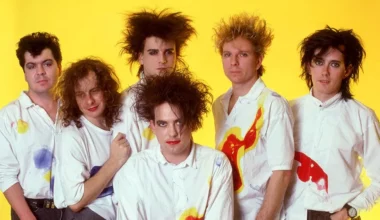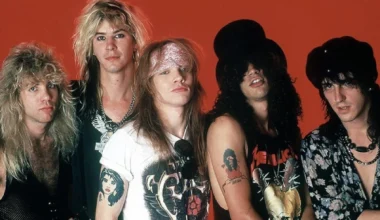The Beatles and The Rolling Stones shared a friendship and rivalry that marked the 1960s. While The Rolling Stones initially followed the suit-and-tie image of The Beatles’ early days, they soon transformed into the “anti-Beatles,” sporting shaggy hair and a raw, bluesy style that exuded a sense of edge and danger. In contrast, The Beatles captivated a wide audience with their charm and accessibility, while the Stones embraced a reputation for rebelliousness.
However, any rivalry between the two bands was mainly commercial. Both bands enjoyed a camaraderie within London’s social circles, meeting at clubs and parties.
In 1963, John Lennon and Paul McCartney even gifted the song I Wanna Be Your Man to the Stones, allowing them to record it. The bands often collaborated on each other’s work, with Brian Jones contributing to Yellow Submarine and Mick Jagger and Keith Richards providing backing vocals on All You Need Is Love. Lennon and McCartney returned the favor, singing backup on the Stones’ track We Love You.
By 1969, each group had cultivated a distinct sound while embracing new instruments, technology, and styles like psychedelia, orchestration, and music hall. The Beatles, with producer George Martin, led the way in orchestration. The Stones, however, were no strangers to lush arrangements, featuring orchestral elements in tracks like She’s a Rainbow and Have You Seen Your Mother Baby Standing in the Shadows.
When The Beatles released Hey Jude with its iconic, full-bodied orchestration, Mick Jagger took note. “I liked the way the Beatles did that with Hey Jude,” Jagger said in 1969. “The orchestra wasn’t just to cover everything up—it was something extra. We may do something like that on the next album.”
True to his word, the Stones were recording Let It Bleed around this time, with the influence of Hey Jude shining through on You Can’t Always Get What You Want. Featuring a choir and French horns, the song didn’t incorporate the Beatles’ full 36-piece orchestra, but its sweeping scale echoed the grandeur of Hey Jude.
Though their creative rivalry was in full swing, it reached an abrupt end when The Beatles disbanded less than four months after the release of Let It Bleed. Yet, the spirit of innovation and friendly competition between these rock icons forever changed the landscape of popular music.







